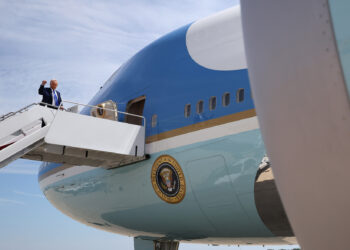Andrew McIntosh is the Director of Research at the human rights NGO Salam for Democracy and Human Rights, focusing on human rights and democracy promotion in MENA and combating disinformation.
Jawaz Fairooz is a former Bahraini MP and the founder and chairman of Salam for Democracy and Human Rights, where he advocates for human rights, democratic change and reform, and reprieve for human rights victims in Bahrain and the Gulf.
Bahrain continues to juggle anti-democratic practices and a population widely supportive of true democratic ideals 14 years after its Arab Spring protest movement. Over this period, Manama's rulers have increasingly and reflexively cracked down on dissent with repression in response to its people's demands—leaving more questions than answers for a populace that, while retaining hope for true democracy, is becoming increasingly pessimistic about its prospects under authoritarian rule. Whether the country's rulers recognize this progressively untenable position, adopting both democratic practices and transitional justice measures for past pro-democracy figures in exile or jailed, remains to be seen.
In February 2011, mass protests—known as the Pearl Uprising—broke out in Bahrain. Frustration with the country's flawed democratic system was a major factor for mass mobilization. The upper house of parliament consists of members directly appointed by the king, who has the power to introduce and veto legislation that circumvents the elected House of Representatives. As a result, citizens from all walks of life participated in the occupation of the Pearl Roundabout in Manama, alongside smaller street protests, calling for improved representation and democratic control.
The authorities violently suppressed these gatherings, fundamentally altering Bahrain's political landscape. Operation Peninsula Shield, primarily consisting of Saudi troops, entered Bahrain and imposed martial law. Bahrain's security forces arrested thousands of civilians, killing at least 35 people. The government arrested dozens of former MPs and activists on political charges, subjecting them to enforced disappearance, torture and citizenship revocation. Hundreds became stateless, forced to seek asylum abroad.
Key activists and political leaders like Sheikh Ali Salman, Sheikh Mohamed Habib Al-Muqdad, Abdulhadi al-Khawaja, Hasan Mushaima and Abuljalil al-Singace remain incarcerated. Five opposition parties have been banned. State control and surveillance have increased. Security forces have arrested and tortured activists for acts as minor as posting critical comments about the government on social media.
Manama did not stop there. In 2018, Bahrain passed the "Political Isolation Laws," which prohibit parliamentary membership for anyone who resigned or was suspended from their position as an MP previously—essentially a political ban. Under these conditions, 6,000 to 11,000 Bahraini citizens, or 2.45% of the total population, cannot vote or stand for election.
That and other actions constitute 14 years of worsening authoritarian rule, hollowing out Bahrain's limited democratic structures. Amnesty International described the 2022 General Election as "an environment of political repression following a decade in which the authorities have infringed upon human rights, curtailed civil society, banned political opposition parties and shuttered independent media." As a result, most elected members of parliament (MPs) are independent, unable to form an organized, effective bloc.
A representative democracy cannot function under these circumstances.
In 2024, our non-governmental organization, Salam for Democracy and Human Rights (SALAM DHR), shared an anonymous survey with Bahrainis to learn more about the effects of Manama's repressive decisions, offering an opportunity to comment on the state of their democracy. It focused on their interactions with elected MPs in the House of Representatives.
Whether the country's rulers recognize this progressively untenable position, adopting both democratic practices and transitional justice measures for past pro-democracy figures in exile or jailed, remains to be seen.
- Andrew McIntosh, Jawad Fairooz
Most respondents conveyed frustration and despair, believing the system cannot represent them or grant them the freedoms vital for a functioning democracy. Among the findings, 84.9% expressed dissatisfaction with their representative, with 86.3% claiming they were poorly represented in parliament. Moreover, 84.6% claimed they did not feel the House of Representatives could hold the Executive Branch of government accountable, with 77% believing MPs had no impact on legislation.
Participants highlighted examples of structural barriers to the election of new or more experienced MPs, inadequate representation across Bahrain's demographics and that MPs were easily overruled. Many believed the legislative branch is ineffective by design.
This would match the legislative process, where MPs can only introduce legislation that cannot be passed independently. They are limited to commenting on and reviewing bills introduced by the executive and can only submit requests presented as bills for government consideration. The absence of political parties has resulted in a lack of coordinated, cohesive efforts, weakening legislative outcomes and diminishing oversight of government policy and action.
Despite most participants expressing pessimism about the state of democracy in Bahrain, they stressed their ongoing faith in democracy itself. Most believed comprehensive reform was necessary, where fair representation, redistribution of districts, amending the Political Isolation Laws and empowering the House of Representatives to shape legislation would transform Bahrain and strengthen democratic structures.
Still, the effect of these restrictive laws was evident. During the monitoring period, we did not record an instance where an MP sought the views of citizens, despite mass protests against the war in Gaza and diplomatic normalization between Bahrain and Israel. Prior to the attacks on Oct. 7, 2023, an estimated 76% of Bahrainis opposed normalization. MPs did not mention these issues in informal consultations with citizens.
Still, a rare instance of dissent occurred in April 2024, when nine MPs called for the release of prisoners of conscience. This included MP Mohamed al-Husseini, who advocated for former opposition leader Sheikh Ali Salman to be released, alongside other prisoners of conscience.
The government's response was swift. That May, the king issued a decree allowing the Court of Cassation to remove MPs from the House and revoke their elected status. Al-Husseini had his status revoked for illegally holding Bahraini and Pakistani citizenship. He was stripped of his Bahraini citizenship, arrested and deported. His children, whose citizenships were also revoked, had their Bahraini nationalities restored after Al-Husseini's wife publicly pleaded with King Hamad for clemency.
The message to other MPs was clear: stay in line.
This power centralization has caused widespread disenchantment, introducing, strengthening and normalizing anti-democratic practices. With the 2026 general election approaching, alienation is diminishing faith in democracy. This ultimately heightens the risk of political disengagement and instability. Younger Bahrainis from the Shi'a Baharna community, who are already economically and politically marginalized, may be at the highest risk of militancy. Older participants were more likely to express continued support for democracy.
Nonetheless, many participants surveyed expressed audacious hope. Reflecting on periods of democratic representation during the 1970s and 2000s, they maintain faith in the democratic process. While 67.4% of respondents claimed that they had voted in Bahraini elections, 71.8% felt the government did not implement parliament's decisions. Effective representation was their main grievance—not democracy.
An ongoing commitment and desire to engage in peaceful democratic reform in Bahrain means democratic change remains possible, but it fades with every election that is neither free nor fair. Channels for dialogue and reform remain open, but Bahrain needs new collective efforts and a fundamental shift towards the rule of law that empowers democratic institutions. The belief that democracy can return to Bahrain by peaceful means through reconciliation and transitional justice are the best chance for the country to be spared from a repeat of 2011—or something worse.
Transitional justice entails releasing prisoners of conscience—especially the leaders of Bahrain's political opposition movements. It also means abolishing the Political Isolation Laws. Moreover, guarantees of freedom of speech, expression and peaceful assembly, aligned with Bahrain's ratification of Article 25 of the United Nations International Covenant on Civil and Political Rights, are critical to diffusing distrust from alienated Bahrainis.
For many, dialogue and reconciliation remain possible, but they require full democratic representation, free expression and free elections. The current situation is unsustainable, as the 2011 Arab Spring proved is the case for Bahrain and autocracies across the region. Until those conditions are altered, the shadow of unrest will loom over the country and its people.







































